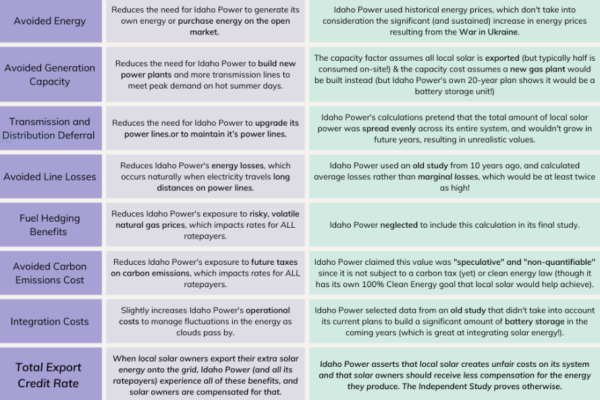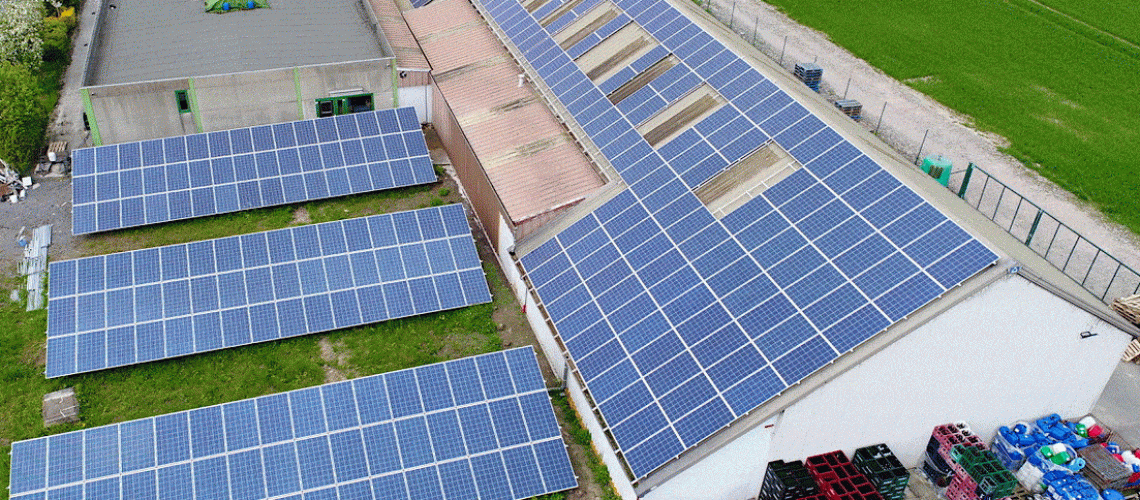An independent study found critical issues with Idaho Power’s analysis of the value of rooftop solar and says it fails to quantify important benefits of distributed solar that are known and measurable.
Private investor-owned utility Idaho Power plans to slash net metering rates for rooftop solar by as much as 60%. Net energy metering (NEM) is a process in which solar owners send their excess daytime production to the grid in exchange for credit on their utility bill, covering nighttime and cloudy day energy use. The process has been instrumental in launching distributed rooftop solar across the United States, helping homeowners secure a more resilient source of energy while saving on bills.
Those who follow the solar industry have heard a similar story numerous times before. There are ongoing high-profile NEM rulemaking cases in California and Florida, and more utilities continue to push the idea that local, distributed clean energy causes grid issues and cross-subsidization of the rich by the poor. These concepts have been debunked in California, and now an independent study of the Idaho energy market appears to have found critical issues with Idaho Power’s analysis of the value of rooftop solar.
“Idaho Power’s study fails to quantify important benefits of distributed solar that are known and measurable, will impact rates, and will benefit Idaho ratepayers and citizens,” said the report.
Idaho Power’s internal study determined that excess power generated by rooftop solar owners is worth 2.8 to 4 cents per kWh, while an independent study by Crossborder Energy determined that same energy is worth nearly five times that value at 18.3 cents per kWh. Currently, net metered rooftop solar is paid at the retail rate of energy, about 8 to 10 cents per kWh.
“This study shows what many of us already expected, that Idaho Power would use a biased approach to protect its own interests of owning and profiting from solar power,” said Lisa Young, Director of the Idaho Chapter of the Sierra Club. “Regulators need to step up here and make sure Idahoans interested in rooftop solar have a chance to produce their own affordable, clean energy.”
Crossborder determined that Idaho Power used outdated data and made poor assumptions to arrive at lower compensation rates. It neglected to include benefits like the long-term hedge against natural gas price volatility, rate impacts of carbon emissions, and infrastructure benefits like avoided line losses and transmission buildout deferral. It also over-valued the cost of integrating rooftop solar by a factor of five, said the study.
“Blaine County has set a goal to achieve 100% clean electricity by 2035. If Idaho Power doesn’t correctly value customer generated roof-top solar, it will hamper our ability to generate local electricity, an important tool to achieve this goal,” said Scott Runkel, member of Climate Action Coalition of the Wood River Valley.
The Idaho Public Utilities Commission (IPUC) is currently reviewing Idaho Power’s study, along with Crossborder’s independent study. Those interested in signing a petition to support fair rooftop solar rulemaking in Idaho can use this link provided by the Sierra Club Idaho.




